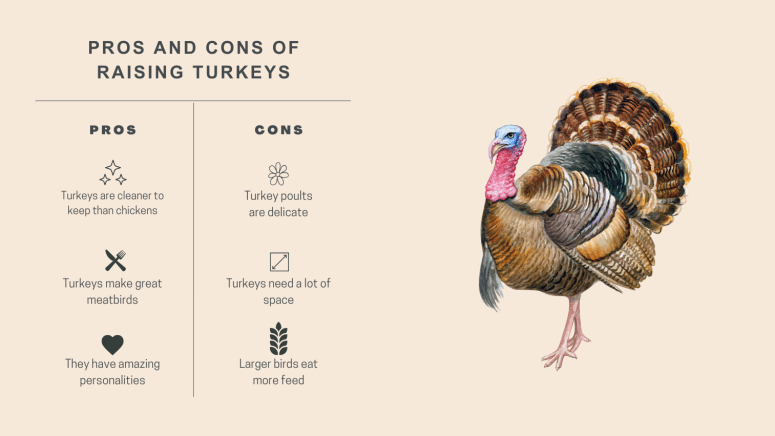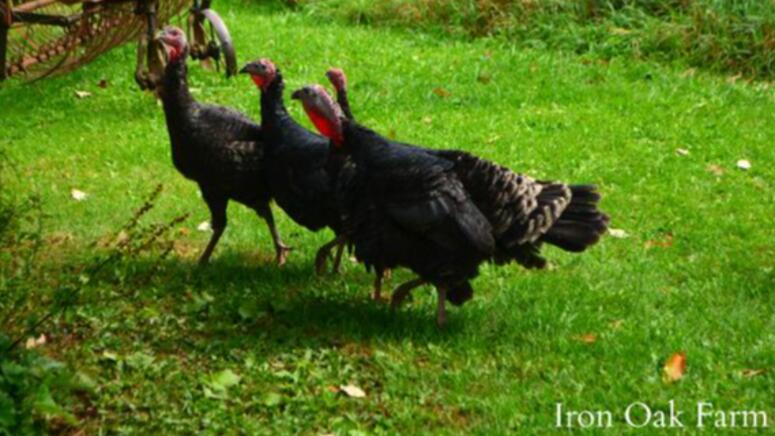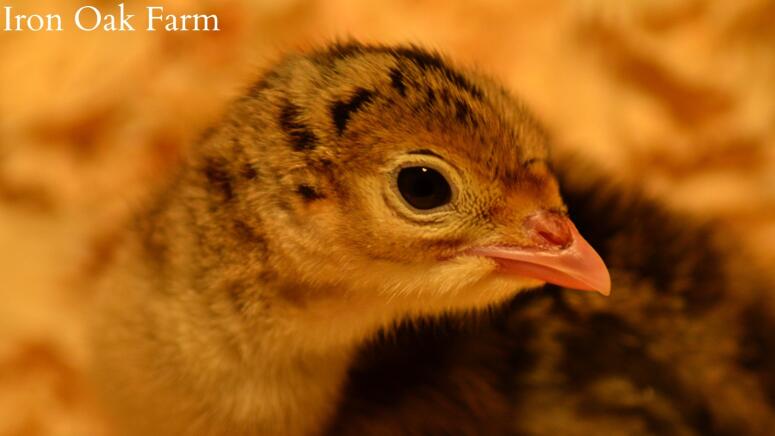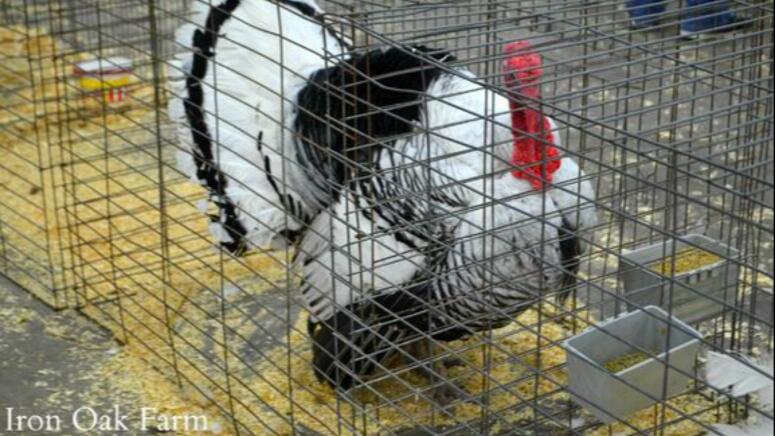Posted by Jennifer Sartell, Professional Homesteader & Blogger, Wed, Jul 18, 2018; updated Fri, June 23, 2023
If your homesteading situation is set up to a point at which you have the ability to raise turkeys, I highly encourage you to do so! Turkeys are amazing creatures, and though we began our Black Spanish turkey flock with the intention of filling our freezer each fall, I found that turkeys have wonderful personalities and make amazing pets as well.
In my opinion, with the exception of the space that raising turkeys requires, turkeys are easier to keep than chickens. They are docile, regal birds that move across the yard with a certain air of sophistication. They create tight family bonds and are fairly intelligent.
If you’ve raised chickens, then you have a good basis for raising turkeys. Like chickens, they need quality feed, fresh water, a secure living space and run, clean bedding, roosting poles, and ground-level nesting boxes.
Other than that, there are a few differences between chickens and turkeys. Below is a list of pros, cons and helpful facts to get you started on raising turkeys.

Pros of Raising Turkeys
They are Cleaner to Keep Than Chickens
Our turkey pen is always cleaner than our chicken pen, and I believe this has to do with the fact that turkeys don’t have that constant instinct to scratch. Our chickens dig through bedding throughout their waking hours and throw soiled bedding everywhere.
When you feed turkeys, their food stays where you put it, the water stays bedding free and the droppings are not scattered like they are in our chicken pens.
They’re Delicious!
Our homegrown heritage turkeys have FLAVOR! I’ve always thought turkey was a rather bland meat, especially the white meat. But after raising our own, I realized that turkey can be delicious! I was blown away by the rich stock and hearty gravy they produced.
They Have Wonderful Personalities
Turkeys are gentle and incredibly loyal, which can make processing them an emotional task. Our head, Tom (who became a pet), would follow us around our yard like our Golden Retriever. He just liked to be near us.

Cons to Raising Turkeys
Turkey Poults are Delicate
Turkey poults are really delicate and sensitive to slight changes including drafts, dampness, temperature changes, etc. They’re slower-moving than chicks and have less of an instinct to run/defend themselves from danger.
Because of this, we’ve always brooded our turkey poults separately from our chicks. Our chicks tend to run the poults over and boss them away from feeders.
They Need a Lot of Space
Everything concerning a turkey is bigger. The run, the coop, the nesting boxes…they’re bigger birds, so they need more space. Unlike chickens, which can easily be housed in recycled dog houses, etc., turkeys need more room; a large shed or small barn work well. The more space you give them, the better they do.
They Eat a Lot
Again, larger birds equal more feed. Turkeys also need to be fed a higher-protein feed, such as a game bird feed, to get them to table weight, which can be more expensive per pound. Breeding pairs can be fed a lower-protein feed when kept for maintenance and breeding.

Facts About Raising Turkeys
Heritage Breeds
If you’re thinking about raising turkeys, I encourage you to research heritage breeds. Heritage breeds may not grow to the huge sizes that the white factory turkeys reach, but they are full of flavor. They reproduce on their own (more about this below) and your breeding pairs will live longer lives.
By raising heritage breeds you are also helping to keep these breeds alive. Many heritage breeds are in danger of extinction because backyard keepers aren’t raising turkeys like they were before farm factories were invented. Large-scale farms concentrate on only one or two breeds.
Heritage Breeds Turkeys (to name a few)
- Bourbon Red
- Black Spanish
- Royal Palm
- Narragansett
- Blue Slate
Heritage breeds can breed on their own
Unlike factory birds, which require artificial insemination, heritage breeds can breed on their own. Our turkey hens made great mothers. They lay only in the spring and early summer, and we would get an egg every day to every other day. Turkey eggs are edible, so if you’re not interested in breeding you can add them to your breakfast omelet.

They Can Fly
And I mean FLY! This is especially true of heritage breeds. Our turkeys were able to scale our two-story hay barn easily. They may require wing clipping to keep them where you want them.
Blackhead
One of the most common questions I get is: Can you raise turkeys with chickens? The answer is yes and no. We’ve always had good luck keeping our adult turkeys with our chickens, but in some areas of the country there is a disease called blackhead that your chicken flock can carry without any outward symptoms.
Your chickens can give this to young turkeys and the turkeys will die from it. Contact your local extension to see if blackhead is in your area before you set up a mixed flock.
Turkeys make a wonderful addition to any moderately sized homestead. If you can raise turkeys…do!
Author Profile: Jennifer Sartell
Jennifer Sartell is the primary caretaker of all animals on her and her husband’s farm in Fenton, MI. With a passion for living a simple life, Jennifer enjoys creating art, taking in nature, raising animals and has developed a deep appreciation for homesteading. Jennifer and her husband, Zach, currently raise goats and poultry.
Her vast amount of experience on the farm includes, but is not limited to: milking, shearing, hoof trimming, vaccine administration, assisting in animal births, dehorning, egg collecting, chick and turkey hatching, feeding, watering, etc. She can also cook a mean farm-to-table meal and when the day is done has documented and photographed their day on the farm.
More Blogs by Jennifer Sartell
- https://www.mannapro.com/homestead/caring-for-pregnant-does-part-2
- https://www.mannapro.com/homestead/caring-for-pregnant-does-part-1
- https://www.mannapro.com/homestead/preparing-caring-for-goats-in-winter
- https://www.mannapro.com/homestead/dairygoatbreeds
- https://www.mannapro.com/homestead/preparing-the-kidding-stall-part-2
- https://www.mannapro.com/homestead/a-guide-to-buying-a-new-goat
- https://www.mannapro.com/homestead/raising-kids-dehorning-wethering
- https://www.mannapro.com/homestead/milking-a-goat
- https://www.mannapro.com/homestead/raising-fiber-goats-101
- https://www.mannapro.com/homestead/hoof-care-for-goats
- https://www.mannapro.com/homestead/putting-together-a-goat-birthing-kit
- https://www.mannapro.com/homestead/preparing-the-kidding-stall-part-1
- https://www.mannapro.com/homestead/breaking-down-the-goat-diet
- https://www.mannapro.com/homestead/birthing-goat-kids
- https://www.mannapro.com/homestead/dealing-with-goat-scours
- https://www.mannapro.com/homestead/feeding-baking-soda-to-your-goats
- https://www.mannapro.com/homestead/pros-cons-and-facts-about-raising-turkeys
- https://www.mannapro.com/homestead/best-breeds-for-raising-chickens-with-children
- https://www.mannapro.com/homestead/a-guide-to-small-goat-breeds
Feature Products

